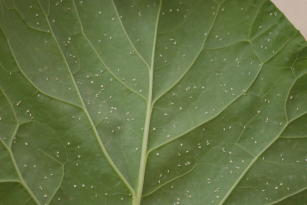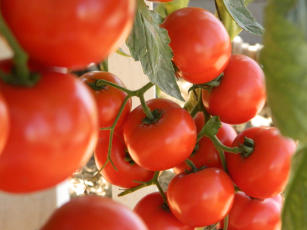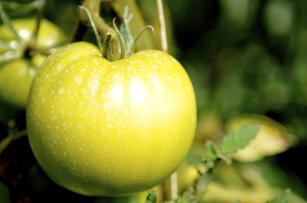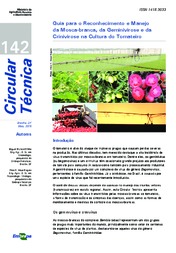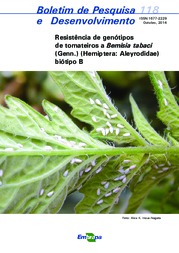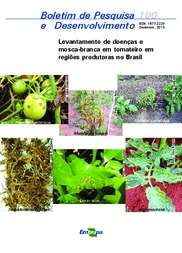Unit
Embrapa Agrobiology
Projetos
 Busca de Projetos
Busca de Projetos
Development of two innovative strategies for whitefly control
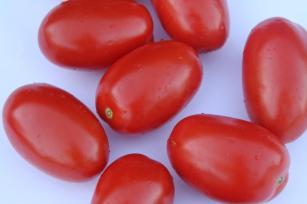
Photo: CARVALHO, Henrique Martins Gianvecchio
Whitefly is currently one of the main pests in Brazil. The insect causes direct damages (sap suction, toxin injection, and physiological disorders) and indirect damages (helping sooty mold grow and transmitting phytopathogenic viruses). Reports of damages started right after its entrance in the country, the likely source of which has been traced to an import of ornamental plants in the 1990s. After this introduction, the insect became very well adapted to Brazilian cropping conditions and spread throughout the country. The main method to control whiteflies is the application of chemical insecticides. However, the effectiveness of these products varies in accordance with insect's stage of life, the crop, the application method, and the existence of insect populations that are resistant to the active ingredient. Such control is difficult due to the high cost of insecticide application. Currently, the damages caused by whitefly attacks in bean and tomato plants are high, compelling the government to establish a period of sanitary break to reduce the losses in these crops. In view of the importance of this insect for the Brazilian agricultural chain, this project was elaborated to develop two alternatives for whitefly control that provide options for managing the insect without negative impacts on people and on nature. The first alternative consists of searching entomopathogenic viruses for biological whitefly control. The second goal consists of expressing part of essential whitefly genes in plants using the 'post transcription gene silencing' (PTGS) strategy based on 'virus induced gene silencing (VIGS)'.
Ecosystem: Cerrados Region
Status: Completed Start date: Mon Sep 01 00:00:00 GMT-03:00 2014 Conclusion date: Thu Aug 31 00:00:00 GMT-03:00 2017
Head Unit: Embrapa Vegetables
Project leader: Alice Kazuko Inoue Nagata
Contact: alice.nagata@embrapa.br
Keywords: Mosca-branca, Aleirodídeo, Bemisia, controle Biológico, Vírus entomopatogênico
